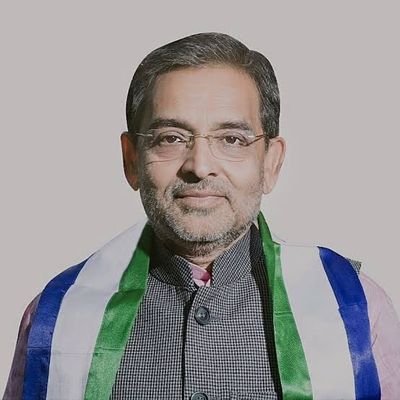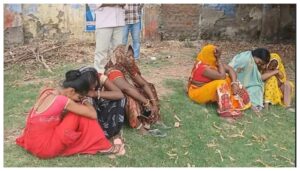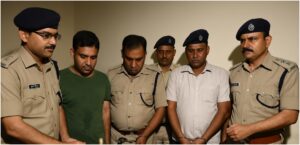Upendra Kushwaha Nominated for Rajya Sabha by NDA After Lok Sabha Defeat

Patna: Upendra Kushwaha, the national president of the Rashtriya Lok Samata Morcha (RLM), has been nominated for the Rajya Sabha by the National Democratic Alliance (NDA) following his defeat in the Lok Sabha elections from Karakat. BJP state president and Deputy Chief Minister Samrat Chaudhary confirmed the nomination in a statement to the media.
The nomination comes after two Rajya Sabha seats were vacated by Misa Bharti from Patliputra and Vivek Thakur from Nawada, who both transitioned to the Lok Sabha. Kushwaha expressed his gratitude to Prime Minister Narendra Modi and NDA allies for his nomination.
Kushwaha and Bihar Chief Minister Nitish Kumar are significant figures in Bihar’s politics, particularly known for their influence on the Koiri-Kurmi political dynamic. After completing his education, Kushwaha began his career as a lecturer at Jandaha College in his home district of Vaishali. However, inspired by Nitish Kumar’s political journey, he transitioned from Upendra Singh to Upendra Kushwaha and entered politics.
Kushwaha first contested and won the assembly elections from Jandaha in 2000, marking the beginning of his close association with Nitish Kumar. In 2004, he was appointed Leader of the Opposition, but their alliance fractured soon after Nitish Kumar came to power in 2005. This led Kushwaha to form his own party, Samata, although it struggled in the 2009 elections.
In 2010, at Kumar’s urging, Kushwaha rejoined Janata Dal (United) and secured a Rajya Sabha seat. However, their partnership ended once more in 2013 when Kushwaha founded the Rashtriya Lok Samata Party (RLSP). He joined the NDA in 2014, successfully contested the elections from Karakat, and served as the Minister of State for Human Resource Development in the Modi government.
Despite the fluctuating political alliances, Kushwaha remains a key figure within Bihar’s Kushwaha community, which constitutes approximately 4.2% of the state’s population according to the Bihar Census report. While he may not have a broad mass appeal, his influence as a caste leader is significant in Bihar’s political landscape.





